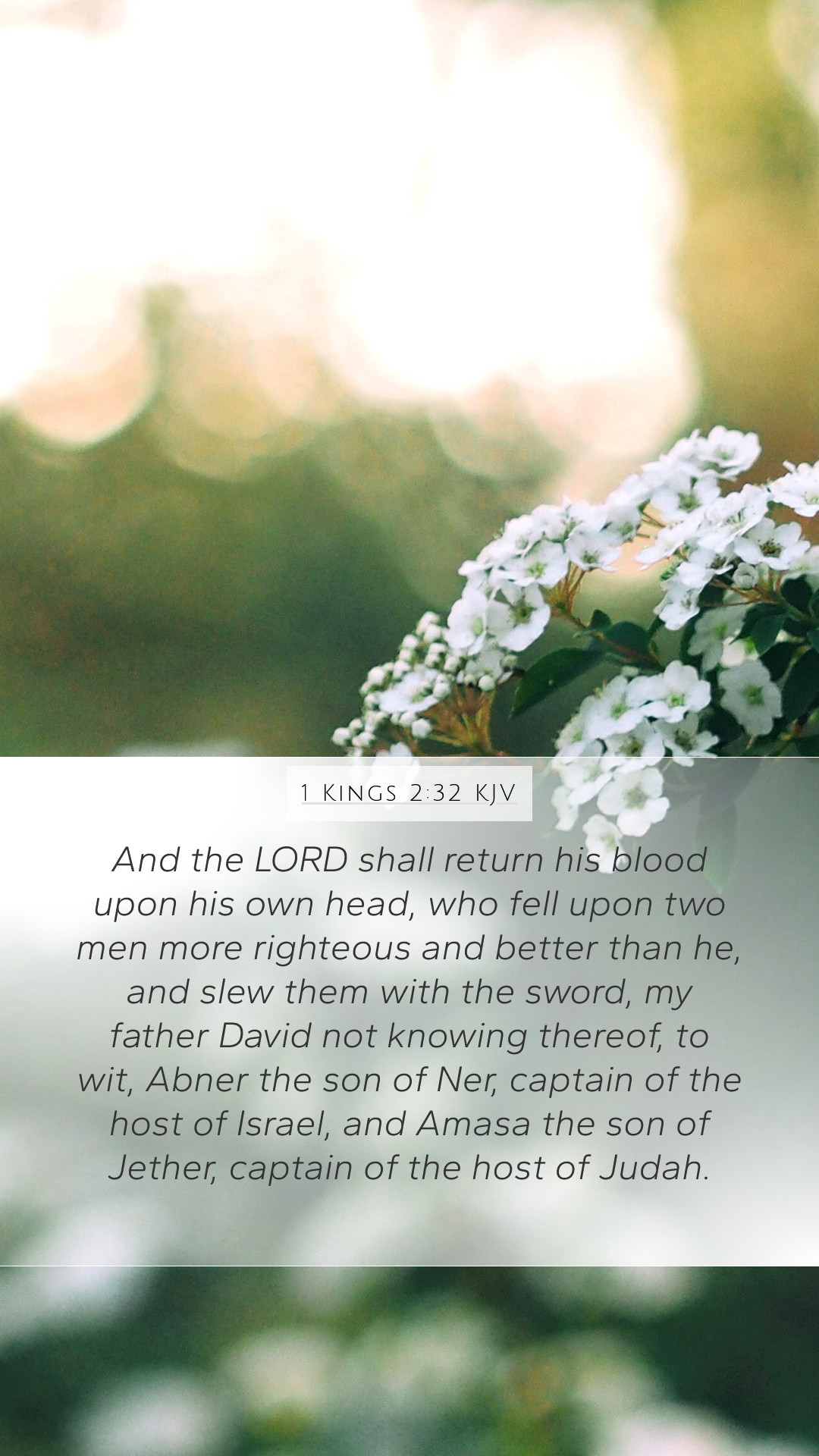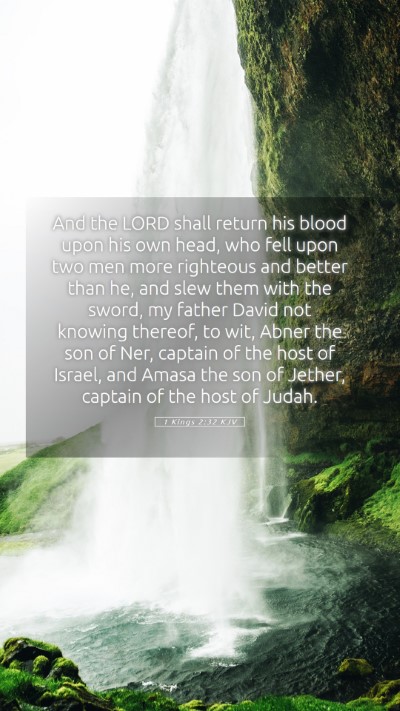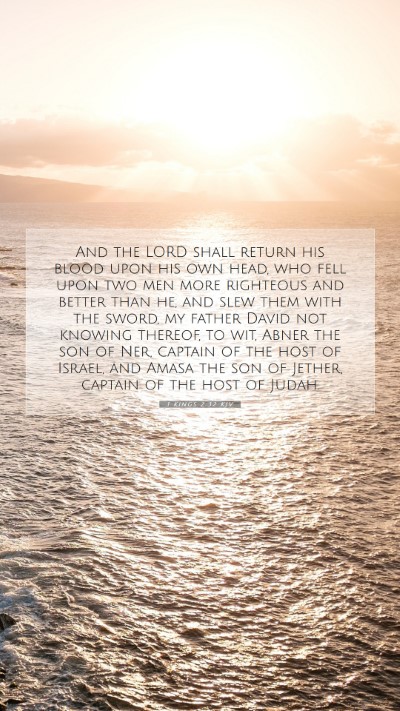Bible Verse Meaning: 1 Kings 2:32
Verse: “And the king said, ‘And the Lord shall return his blood upon his own head, who hath shed the blood of the innocent, and hath killed them with the sword.’” (1 Kings 2:32)
Overview
In this verse, King Solomon addresses the actions of Joab, highlighting the principle of divine justice. The passage emphasizes the idea that God will hold individuals accountable for the shedding of innocent blood, reflecting a core tenet of biblical justice.
Bible Verse Interpretations
Both Matthew Henry and Albert Barnes provide insights into the gravity of Joab's actions and their implications. They explore themes of retribution and moral accountability, suggesting that Joab’s treachery against innocent people sets a precedent for his own fate. Adam Clarke expands on the themes of guilt and God’s retribution, asserting that the shedding of innocent blood cannot go unpunished.
Understanding Scripture
This verse serves as a potent reminder of the broader scriptural narrative concerning justice. From Genesis through Revelation, the Bible repeatedly emphasizes that God sees and addresses injustice. The act of killing the innocent is viewed as an abomination, and this principle resonates throughout biblical teachings.
Bible Study Insights
- Divine Justice: This verse underscores that God's justice is both swift and certain, as echoed in Romans 12:19, which warns against revenge, leaving it to God's wrath.
- Accountability: The focus on Joab's actions reveals a biblical principle that every individual must face the consequences of their deeds, reinforcing the moral fabric of society.
- Theme of Innocence: The concept of protecting the innocent is critical in Scripture, reflecting God's heart for justice and mercy, as seen in Proverbs 6:16-19.
Commentary on 1 Kings 2:32
Matthew Henry: Henry elaborates on the significance of headship and accountability in God’s eyes. He notes that kings and leaders are particularly scrutinized, emphasizing that their judgment will be more severe.
Albert Barnes: Barnes points out the historical context of the verse, linking Joab’s violent past to the motivations behind Solomon’s actions. His commentary situates these events within the broader narrative of Israel’s kings.
Adam Clarke: Clarke discusses Joab’s character and his history of betrayal. He stresses that God’s judgment is fair, and reflects back on human deeds by stating that God's principles of justice come to reclaim the blood of the innocent.
Application of 1 Kings 2:32
This passage invites readers to reflect on personal accountability and the serious nature of justice in their lives. It encourages believers to consider their actions and the impact they have on others, fostering a commitment to righteousness.
Related Bible Cross References
- Exodus 23:7 - “Keep thee far from a false matter; and the innocent and righteous slay thou not: for I will not justify the wicked.”
- Proverbs 6:16-19 - Lists things that are an abomination to the Lord including hands that shed innocent blood.
- Romans 12:19 - “Vengeance is mine; I will repay, saith the Lord.”
Further Study Resources
This verse can be explored through various study guides, commentary texts, and online Bible study platforms, allowing for a comprehensive understanding of Scripture.
Conclusion
1 Kings 2:32 serves as a powerful reminder of the seriousness of justice and holding to judicial integrity, calling readers to reflect on the broader implications of their actions in light of God's eternal truth.


